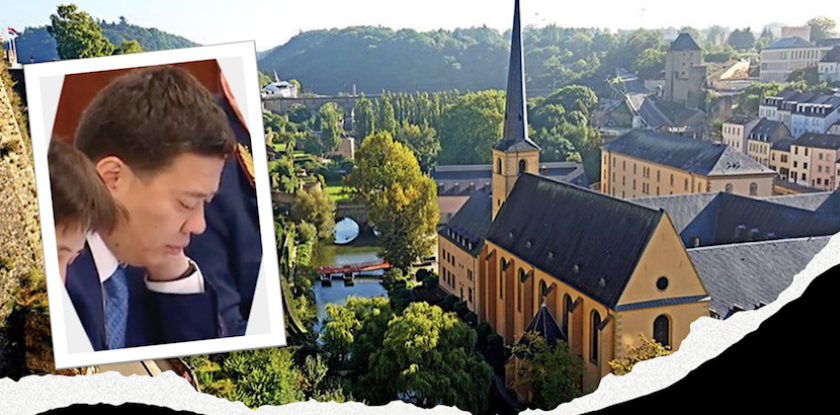The purely legal debate between Akorda and the Moldovan investors is becoming more and more public. And the fate of Kazakhstan’s best asset may may soon be at stake.
The Kazakh Ministry of Justice has started the new year with triumphant reports. On January 7, 2021, the agency’s website released an announcement on an «important victory» in the trial against Anatolie and Gabriel Stati, Ascom S. A. And Terra Raf Trans Traidding Ltd (hereinafter — Stati).
We are talking about the decision of the Luxembourg District Court to hold off on the trial related to arresting the Kazakh assets in Luxembourg. Anatolie and Gabriel Stati started the trial back in 2017. The holding off is to be in effect until the Luxembourg law-enforcement authorities will have conducted the full investigation of the alleged criminal activities of which the Moldovan investors have been accused by the Kazakh Ministry of Justice.
The investigation of the alleged fraudulent activities started after the Kazakh lawyers had filed a claim to the local law-enforcement agencies in May 2019. In the claim, the Kazakh Ministry of Justice accuses Stati of falsifying documents (Articles 196 and 197 of the Luxembourg Criminal Code). Apart from that, they were accused of attempting to launder the money obtained as a result of the fraud.
What are being Stati accused of?
You will recall the Kazakh authorities accuse the Moldovan investors of overrating the price of construction of a gas processing plant and, therefore, of using falsified documents for the justification of the estimates.
It seems like the Kazakh state agency has been employing this accusation for a long time and in different jurisdictions in pursuit of a single goal — to overturn the decision of the Arbitration Institute of the Stockholm Chamber of Commerce that, back in 2013, committed Kazakhstan to paying US540 $ mln to the owners of Tristan Oil.
When Stati’s representatives began trying to gain the recognition of the arbitration decision in different countries in order to make Akorda pay the compensation, the Kazakh Ministry of Justice started using the «incorrect» estimation of the investors’ losses as the main argument for the defence.
With that, the Ministry of Justice was acting according to the principle that the best defence is a good offence and the best good offence is a criminal accusation. Bringing a civil claim into the criminal domain is a beloved practice in Kazakhstan (as well as in the other post-Soviet countries). The Kazakh authorities are also trying to use this argument in foreign jurisdictions to the best of their abilities. Needless to say, the result is rather underwhelming.
Why drag it out?
The trials held in the other jurisdictions demonstrate how slim the Ministry of Justice’s prospects are. Nonetheless, the claims are snowballing and a lot of money is being paid to expensive lawyers. What for, one might wonder?
It looks like the main task of Marat Beketayev, the Kazakh Minster of Justice, lies in delaying the hour of reckoning for as long as possible.
In Luxembourg, the countdown started back in August 2017 when the Moldovan investors received a judicial order recognising the Stockholm arbitration court’s decision to be executed in the Grand Duchy.
The Kazakh lawyers had appealed the order but alas, the appeal was not granted. On December 19, 2019, the order was confirmed by the Luxembourg Court of Appeal. Later, the lawyers filed an appeal to the Luxembourg Court of Cassation whose verdict is due this February. It looks like, from the very first, Beketayev cherished no hope to win the civil claim since, back in May 2019, Kazakhstan’s representatives moved the case into the criminal domain and filed a criminal claim. However, they admitted this fact a year later, in March 2020, when fully realised they had lost the civil trial.
As Kazakhstan’s representatives state in their press-release, the decision of the Luxembourg District Court made on January 8, 2021, means that Anatolie and Gabriel Stati will not be able to execute the arbitration decision in re any Kazakhstan’s assets in Luxembourg until the criminal investigation is over.
Where does Luxembourg come in?
Kazakhstan’s representatives believe that Stati’s lawyers turned to Luxembourg in 2017 after giving up on the trials in the UK where the court had accepted Kazakhstan’s arguments related to the fraudulent nature of the GPP price calculations. However, the very same press-release names Luxembourg as the key jurisdiction where Anatolie and Gabriel Stati are trying to achieve the execution of the arbitration decision.
Beketayev’s attorneys have every reason to think so. For, according to the 2017 verdict of the Luxembourg court, the following assets were to be arrested -
-ERG (Eurasian Resources Group LLC)
-ArcelorMittal SA,
— Cameco Luxembourg SA,
— Tengizchevroil Finance Company LLC.
Therefore, because of the debate over US540 $ mln, Kazakhstan has essentially lost the legal control of its strategic assets — nonferrous metals, steel, uranium and oil.
We are yet to learn about the underpinnings of this case (we are not sure if they exist, perhaps the matter lies in nothing but generating income out of the legal services). However, it is now perfectly clear that the Stati case has gained momentum and the circle of the players has widened significantly.
Who are the key players?
Let us start by saying that the Stati case is now missing the Moldovan investors. Today, the team of professional U.S. financiers from Argentem Creek (who specialise in bad loans of the emerging markets) is playing the role of the Kazakh Ministry of Justice’ main adversary. This company owns Tristan Oil’s securities issued to fund the development of the oil& gas assets in Kazakhstan.
In 2006, the securities were bought by Black River Asset Management AG, a subsidiary of Cargill, one of the world’s largest suppliers of agricultural products.
Starting from the 1990s, Cargill’s interests in Kazakhstan had been represented by DEN, a grain supplier that had founded its business during the first years of the country’s independence. In 2015, Cargill pulled the plug on its asset management business and Tristan Oil’s securities ended up in the portfolio of Argentem Creek founded by Black River’s managers.
The company is chaired by Daniel Chapman who, while working in Black River, was responsible for the emerging markets strategy.
Argentem Creek became directly involved in the Stati trials since the Moldovan investors agreed to hand it 70% of the compensation awarded by the Stockholm arbitration. It has become public knowledge relatively recently when Kazakhstan filed a claim against Chapman and Argentem Creek accusing them of conspiring with Stati. The claim was filed in the United States.
Note that not only has Argentem Creek articulated its position but even created a website indicatively named Tristangate where the company has released all the key news and documents related to the case. And the fact that the website has also got a Russian-language version indicates that the war will be fought in the public domain.
Both the Moldovan investors and Kazakhstan’s representatives have always strayed away from excessive publicity. As for Argentem Creek, already on the main page of its website, it speaks on behalf of the U.S. and other international investors which, of course, promises that the situation will unfold according to a most scandalous scenario.
The company’s official representative has openly informed us that Kazakhstan may pay a very high price for attempting to avoid the execution of the arbitration decision.
«To date, Kazakhstan is thought to have spent some tens of millions of dollars in legal fees to fight the case by filing these kind of diversionary litigation efforts, and seem willing to spend even more. This strategy to delay the payment of the award and avoid the country’s obligations under the Energy Treaty may come at a very high cost for Kazakhstan’s economy at a time when it seeks foreign investment more than ever», says Argentem Creek’s representative.
They carefully avoid assessing the risks and do not speak straight out that Kazakhstan’s best assets have fallen victim to this long-lasting war. Nonetheless, the situation seems to be rather clear.
At the same time, from the formal viewpoint, the case has been nothing but a succession of legal trials; no one has attempted to attack the assets yet. Although the sudden death of oligarch Alidzhan Ibragimov of COVID-19 (Ibragimov owned 20,7% of ERG) cannot but raise concerns about the fate of this company arrested in Luxembourg.





